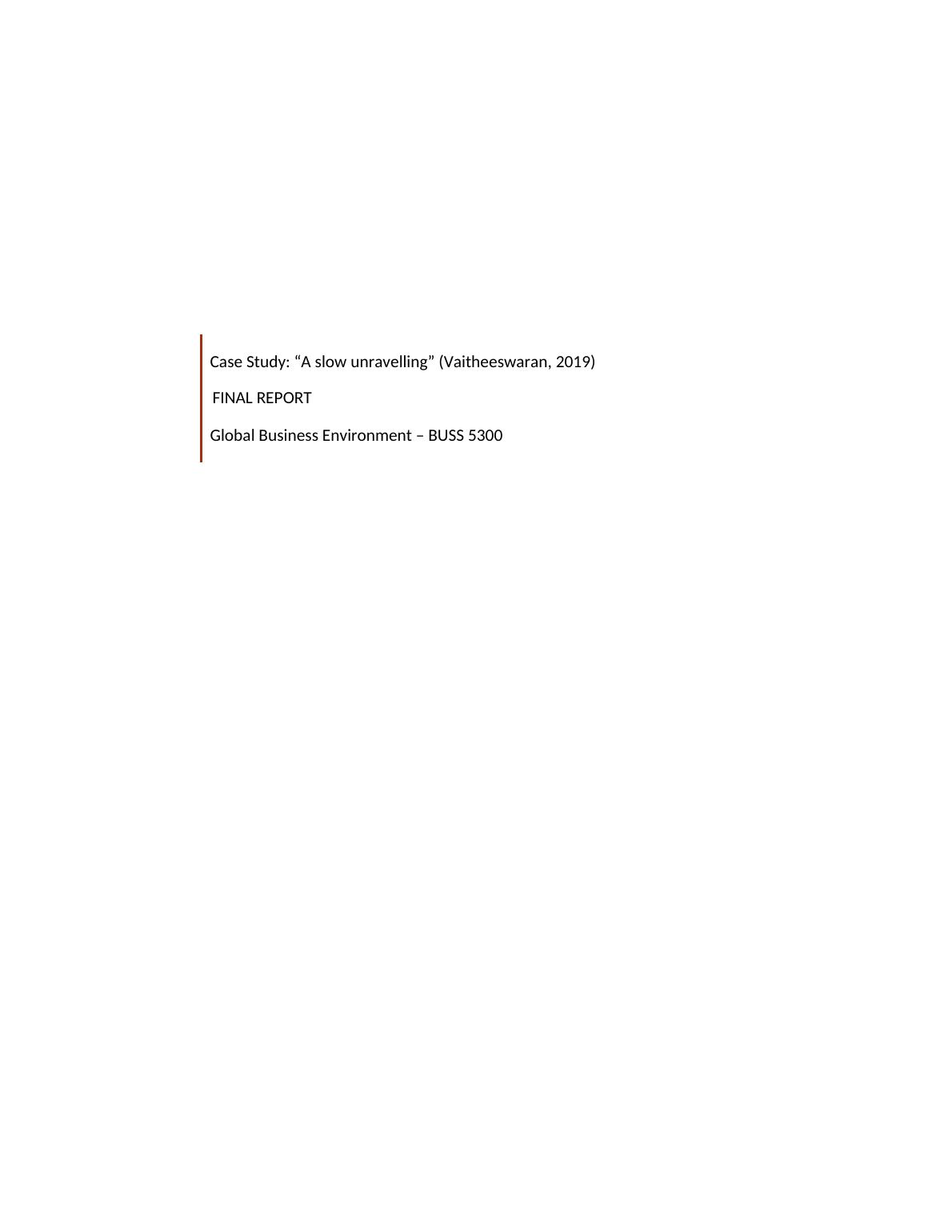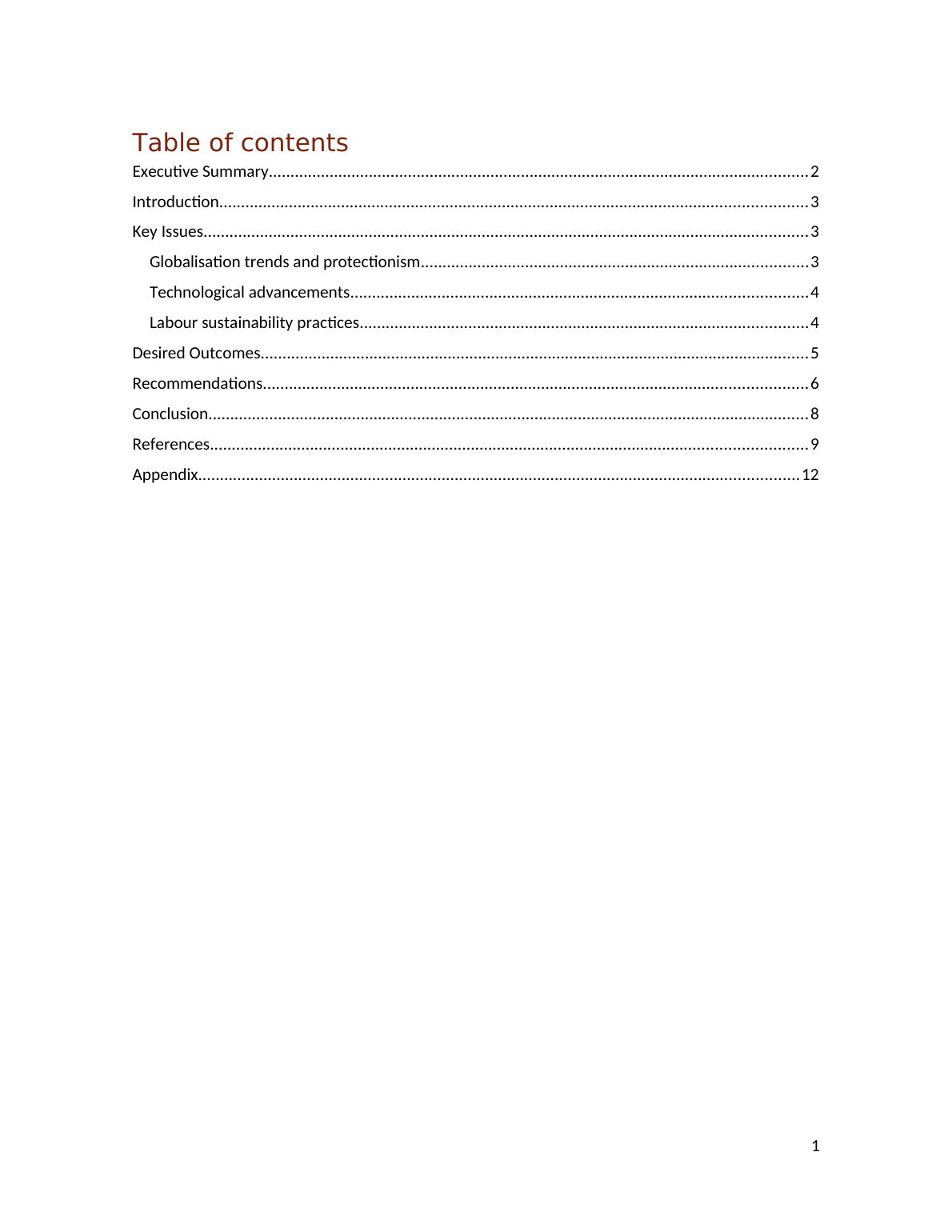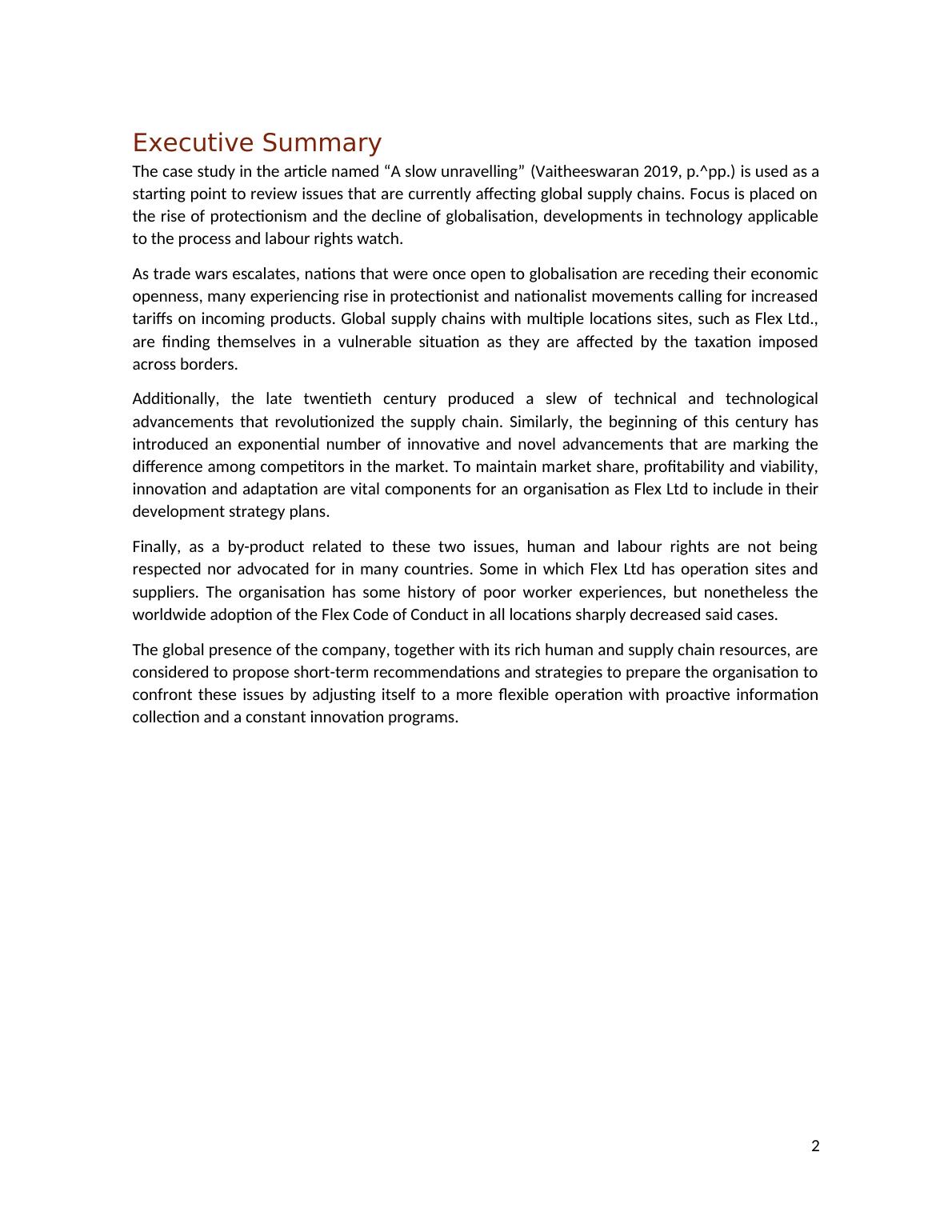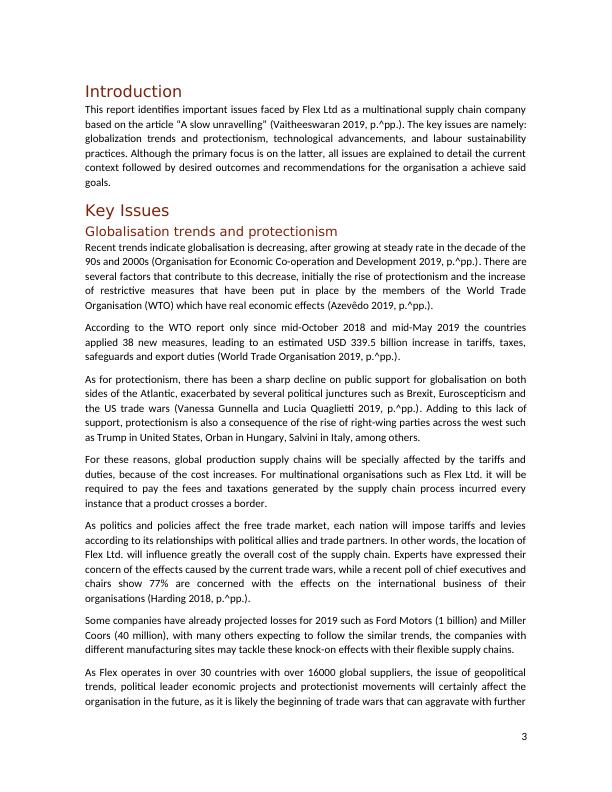Issues Affecting Global Supply Chains: A Case Study of Flex Ltd.
Added on 2020-10-01
16 Pages5101 Words420 Views
Case Study: “A slow unravelling” (Vaitheeswaran, 2019)FINAL REPORTGlobal Business Environment – BUSS 5300

Table of contentsExecutive Summary............................................................................................................................2Introduction.......................................................................................................................................3Key Issues...........................................................................................................................................3Globalisation trends and protectionism.........................................................................................3Technological advancements.........................................................................................................4Labour sustainability practices.......................................................................................................4Desired Outcomes..............................................................................................................................5Recommendations.............................................................................................................................6Conclusion..........................................................................................................................................8References.........................................................................................................................................9Appendix..........................................................................................................................................121

Executive SummaryThe case study in the article named “A slow unravelling” (Vaitheeswaran 2019, p.^pp.) is used as astarting point to review issues that are currently affecting global supply chains. Focus is placed onthe rise of protectionism and the decline of globalisation, developments in technology applicableto the process and labour rights watch.As trade wars escalates, nations that were once open to globalisation are receding their economicopenness, many experiencing rise in protectionist and nationalist movements calling for increasedtariffs on incoming products. Global supply chains with multiple locations sites, such as Flex Ltd.,are finding themselves in a vulnerable situation as they are affected by the taxation imposedacross borders.Additionally, the late twentieth century produced a slew of technical and technologicaladvancements that revolutionized the supply chain. Similarly, the beginning of this century hasintroduced an exponential number of innovative and novel advancements that are marking thedifference among competitors in the market. To maintain market share, profitability and viability,innovation and adaptation are vital components for an organisation as Flex Ltd to include in theirdevelopment strategy plans.Finally, as a by-product related to these two issues, human and labour rights are not beingrespected nor advocated for in many countries. Some in which Flex Ltd has operation sites andsuppliers. The organisation has some history of poor worker experiences, but nonetheless theworldwide adoption of the Flex Code of Conduct in all locations sharply decreased said cases.The global presence of the company, together with its rich human and supply chain resources, areconsidered to propose short-term recommendations and strategies to prepare the organisation toconfront these issues by adjusting itself to a more flexible operation with proactive informationcollection and a constant innovation programs.2

IntroductionThis report identifies important issues faced by Flex Ltd as a multinational supply chain companybased on the article “A slow unravelling” (Vaitheeswaran 2019, p.^pp.). The key issues are namely:globalization trends and protectionism, technological advancements, and labour sustainabilitypractices. Although the primary focus is on the latter, all issues are explained to detail the currentcontext followed by desired outcomes and recommendations for the organisation a achieve saidgoals.Key IssuesGlobalisation trends and protectionismRecent trends indicate globalisation is decreasing, after growing at steady rate in the decade of the90s and 2000s (Organisation for Economic Co-operation and Development 2019, p.^pp.). There areseveral factors that contribute to this decrease, initially the rise of protectionism and the increaseof restrictive measures that have been put in place by the members of the World TradeOrganisation (WTO) which have real economic effects (Azevêdo 2019, p.^pp.). According to the WTO report only since mid-October 2018 and mid-May 2019 the countriesapplied 38 new measures, leading to an estimated USD 339.5 billion increase in tariffs, taxes,safeguards and export duties (World Trade Organisation 2019, p.^pp.). As for protectionism, there has been a sharp decline on public support for globalisation on bothsides of the Atlantic, exacerbated by several political junctures such as Brexit, Euroscepticism andthe US trade wars (Vanessa Gunnella and Lucia Quaglietti 2019, p.^pp.). Adding to this lack ofsupport, protectionism is also a consequence of the rise of right-wing parties across the west suchas Trump in United States, Orban in Hungary, Salvini in Italy, among others.For these reasons, global production supply chains will be specially affected by the tariffs andduties, because of the cost increases. For multinational organisations such as Flex Ltd. it will berequired to pay the fees and taxations generated by the supply chain process incurred everyinstance that a product crosses a border. As politics and policies affect the free trade market, each nation will impose tariffs and leviesaccording to its relationships with political allies and trade partners. In other words, the location ofFlex Ltd. will influence greatly the overall cost of the supply chain. Experts have expressed theirconcern of the effects caused by the current trade wars, while a recent poll of chief executives andchairs show 77% are concerned with the effects on the international business of theirorganisations (Harding 2018, p.^pp.). Some companies have already projected losses for 2019 such as Ford Motors (1 billion) and MillerCoors (40 million), with many others expecting to follow the similar trends, the companies withdifferent manufacturing sites may tackle these knock-on effects with their flexible supply chains.As Flex operates in over 30 countries with over 16000 global suppliers, the issue of geopoliticaltrends, political leader economic projects and protectionist movements will certainly affect theorganisation in the future, as it is likely the beginning of trade wars that can aggravate with further3

End of preview
Want to access all the pages? Upload your documents or become a member.
Related Documents
globalisation and culturelg...
|16
|452
|29
Impact of Globalization on Companies and Industrieslg...
|4
|672
|463
International Business Strategy – Case Study of Rovio Entertainmentlg...
|8
|2445
|97
Resourcing and Talent Planninglg...
|24
|5919
|314
Economic Concepts And Models - Article Reviewlg...
|13
|542
|441
Globalization and its Effects on Trade and Economylg...
|10
|1562
|380